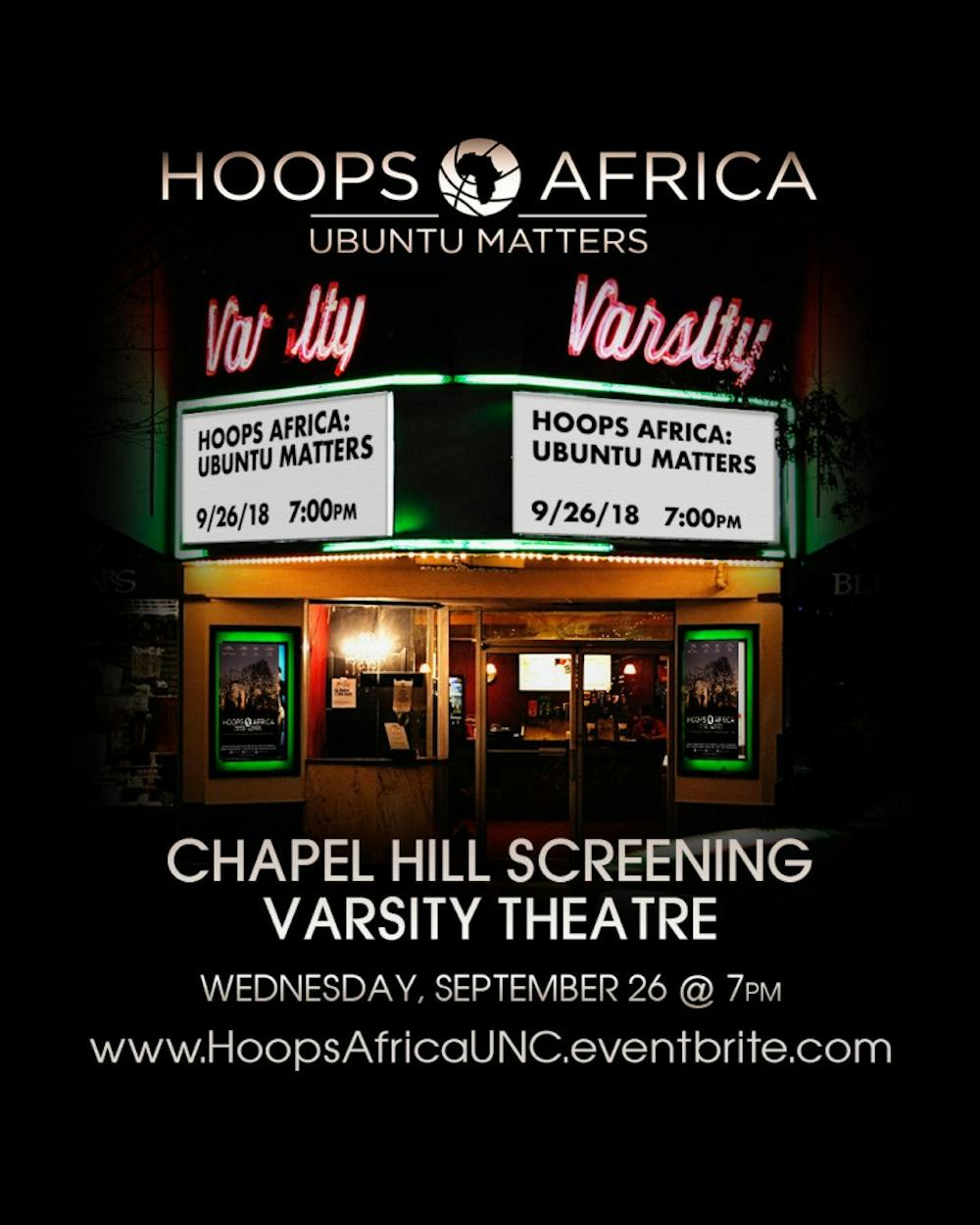Taylor Sharp, a North Carolina class of 2016 graduate and former Morehead-Cain scholar, created the documentary "Hoops Africa: Ubuntu Matters," to explore the influence and impact of basketball on the continent.
On Wednesday night, the Varsity Theater is presenting a special screening for Sharp’s film at 7:30 p.m., with some special guests including UNC athletes and the Hoops 4 Hope Founder, Mark Crandall. Sports editor Chris Hilburn-Trenkle spoke with Sharp on Monday and discussed his process in putting together the documentary.
The Daily Tar Heel: I would just like to learn a little bit about you, your background from UNC and how that guided you along this process.
Taylor Sharp: I was here at UNC, and I graduated in May of 2016. While here, a couple things that were big factors, kind of getting me ready to make this film once I left UNC was I was a Morehead-Cain (scholar) here. As a part of their summer immersion program, I had some pretty unique summer opportunities, all of which kind of coalesced in this film. So after my first year at Carolina, I had the opportunity to go volunteer with Hoops 4 Hope, a basketball nonprofit in Zimbabwe. So I spent a summer in Zimbabwe coaching and teaching life skills. And then the next couple summers I spent at a sports agency in (Washington) D.C. and then at the NBA league office in New York. So all of that kind of increased my exposure in the basketball world and kind of set myself up to have the foundation to be able to make a film like this happen.
And also, while on campus, I led the Carolina Sport Business Club, so it gave me a lot of exposure to the industry. UNC was the perfect place for me. I was considering a bunch of different majors, but I ended up doing an interdisciplinary study that focused on the philosophy and business of sport. So, my entire course of study here at UNC was to look at how sports affect society, and this documentary project is only an extension of the focus of my education at UNC.
DTH: What stood out to you that you wanted to be able to share that story of your time in Zimbabwe?
TS: As someone who’s spent a lot of time in sports as a fan and as a participant and in the industry, the important thing about sports is to use it as a form for good. I’m really interested in how sports can be used for positive social impact, and Hoops 4 Hope in Zimbabwe was a great representation of how sports can be used for good. They use basketball as a way to teach life skills, (such as) HIV awareness and conflict resolution and gender equality and all of the like. So it was a powerful summer, seeing basketball used so meaningfully in the lives of so many Zimbabwean youth.
But also, I fell in love with Zimbabwe. I fell in love with the beauty of the country, of the people. Some of my favorite basketball courts in the world now are in Zimbabwe, and I left with the classic mentality of feeling as though they impacted me a lot more than I impacted them during my summer of service. I’ve always had kind of an itch to get back to be able to bring my stories to life. To be able to spread them more widely to hopefully bring more exposure to the nonprofit and also to spread this concept, this African philosophy of Ubuntu, which the film harps on and what was a big part of Hoops for Hope’s mission statement.
DTH: What is the overall message you want people to get from watching this film?



